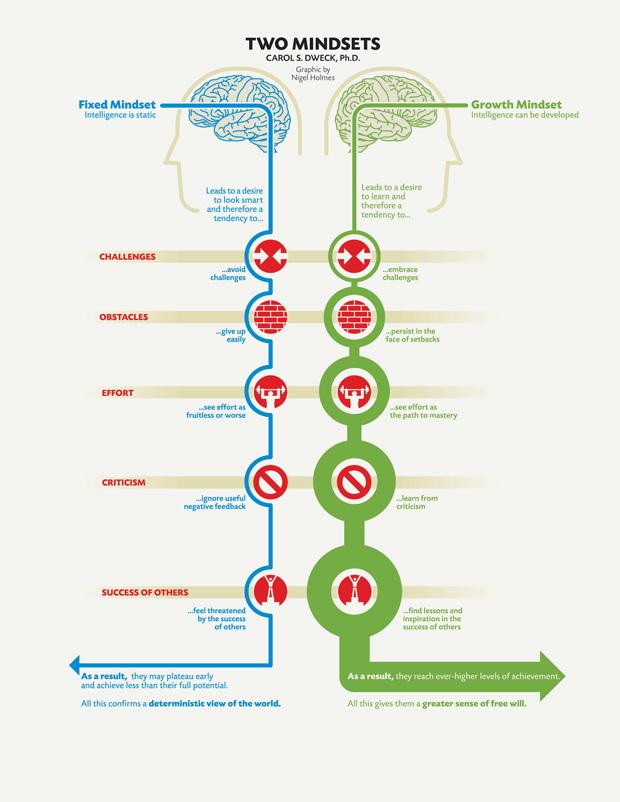In a world that often equates success with perfection, the fear of failure can be paralyzing. Yet, what if the very setbacks we dread could become our greatest teachers? Embracing failure as a learning tool is not only a pathway to personal growth but also a powerful strategy for building unshakeable confidence. This article will guide you through the transformative process of redefining failure, offering practical steps to harness its lessons and propel yourself towards your goals with newfound resilience. Whether you’re navigating career challenges, personal hurdles, or creative pursuits, understanding how to leverage failure will empower you to step boldly into the arena of life, equipped with the confidence to face whatever comes your way.
Recognize Failure as a Stepping Stone to Success
Failure is not just an obstacle, but a catalyst for growth and innovation. By redefining our perception of setbacks, we unlock the potential to harness them as powerful tools for personal and professional development. Acknowledging failure allows us to dissect the components of our mistakes and understand what went wrong, providing invaluable insights that can shape our future strategies. When faced with a setback, consider asking yourself:
- What can I learn from this experience?
- How can I apply this knowledge to improve?
- What steps can I take to prevent similar issues in the future?
By addressing these questions, we not only refine our skills but also build resilience and adaptability. Remember, each failure is a lesson in disguise, waiting to be uncovered and transformed into a stepping stone towards success. This mindset shift transforms failure from a source of fear into a valuable ally in the journey of self-improvement and confidence-building.

Cultivate a Growth Mindset for Lasting Confidence
To truly build unshakeable confidence, one must embrace the idea that failure is not the end but a stepping stone towards growth. Adopting a growth mindset involves recognizing that your abilities and intelligence can be developed with effort, learning, and perseverance. By viewing setbacks as opportunities for development, you open the door to resilience and long-term success. Here’s how you can harness this mindset to boost your confidence:
- Reframe Failures: Instead of seeing failures as definitive ends, consider them as experiments. What worked? What didn’t? What can you do differently next time? This perspective shift can transform fear into curiosity.
- Seek Feedback: Constructive criticism is a powerful tool for growth. Embrace feedback with open arms and use it to refine your skills and approach.
- Celebrate Small Wins: Acknowledge and celebrate your progress, no matter how minor it may seem. These victories are proof of your growth and fuel your journey towards greater confidence.
By integrating these practices into your daily routine, you will not only nurture a growth mindset but also build a foundation of lasting confidence that thrives on learning and adaptability.

Transform Setbacks into Opportunities for Improvement
When life throws curveballs, it’s easy to see them as roadblocks. However, by shifting our perspective, these setbacks can become powerful catalysts for growth and self-improvement. Every failure is an opportunity to refine your skills and strategies. Start by identifying what went wrong and understand the root cause. This isn’t about self-blame; it’s about gaining insight. Ask yourself questions like:
- What specific actions led to this outcome?
- Were there any warning signs I ignored?
- How can I adjust my approach to avoid similar pitfalls?
Embrace a mindset of curiosity and resilience. Each setback teaches a lesson that can enhance your future endeavors. By learning to welcome failure as a stepping stone, you empower yourself to tackle challenges with renewed vigor and confidence. Remember, the most successful individuals are those who have mastered the art of turning their failures into stepping stones towards success.

Develop Resilience Through Reflective Practices
Incorporating reflective practices into your routine can transform how you perceive setbacks, allowing you to view them as opportunities for growth. Reflective practices involve analyzing experiences to gain insights and foster personal development. By taking the time to reflect, you can identify patterns in your reactions and thoughts, which can empower you to make more informed decisions in the future. This self-awareness is crucial in building resilience, as it helps you understand your strengths and weaknesses, and encourages you to adapt and improve.
To effectively utilize reflective practices, consider implementing the following strategies:
- Journaling: Dedicate a few minutes each day to jot down your thoughts and experiences. This practice can help clarify your feelings and track your progress over time.
- Mindfulness meditation: Engage in meditation to cultivate a non-judgmental awareness of your thoughts and emotions. This can lead to greater emotional regulation and a more balanced perspective.
- Feedback sessions: Seek constructive feedback from trusted peers or mentors. Their insights can provide valuable perspectives that you might overlook on your own.
By embracing these reflective practices, you can turn failures into powerful learning tools, ultimately enhancing your confidence and resilience.




